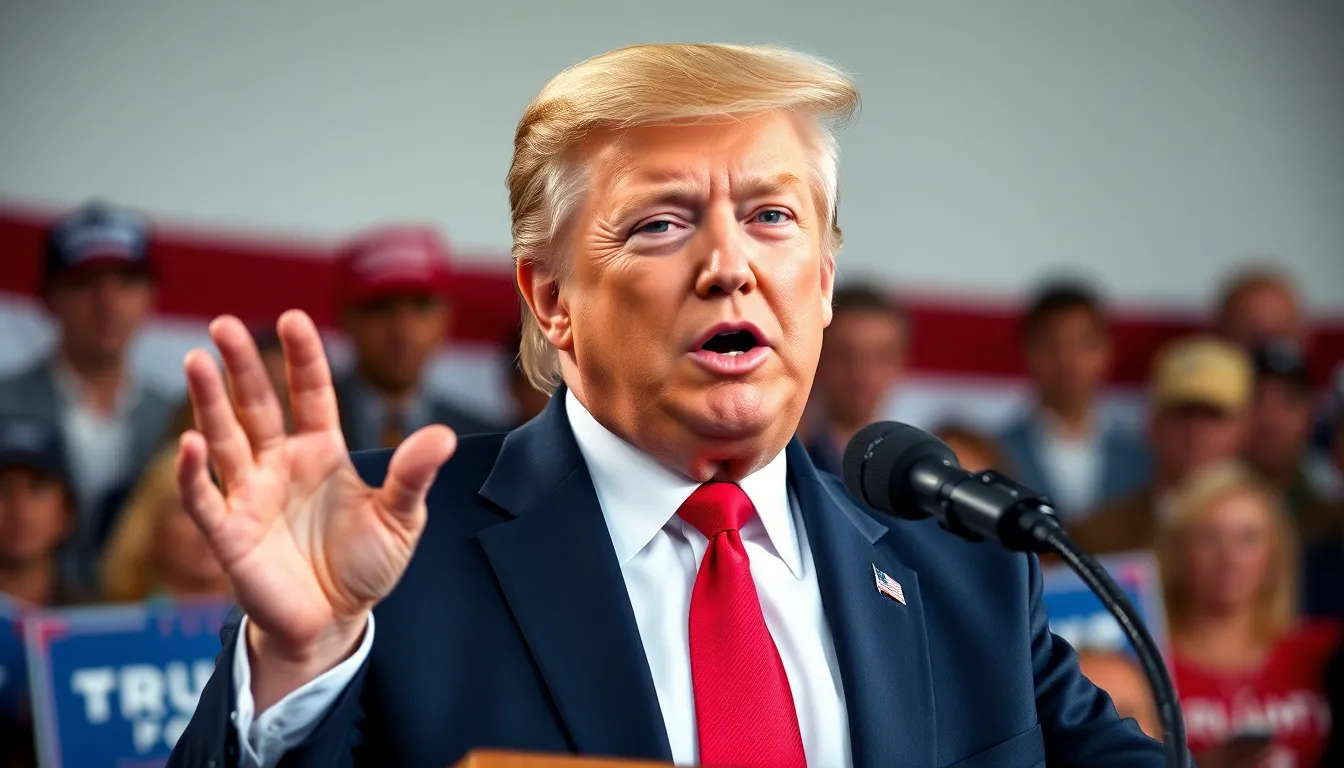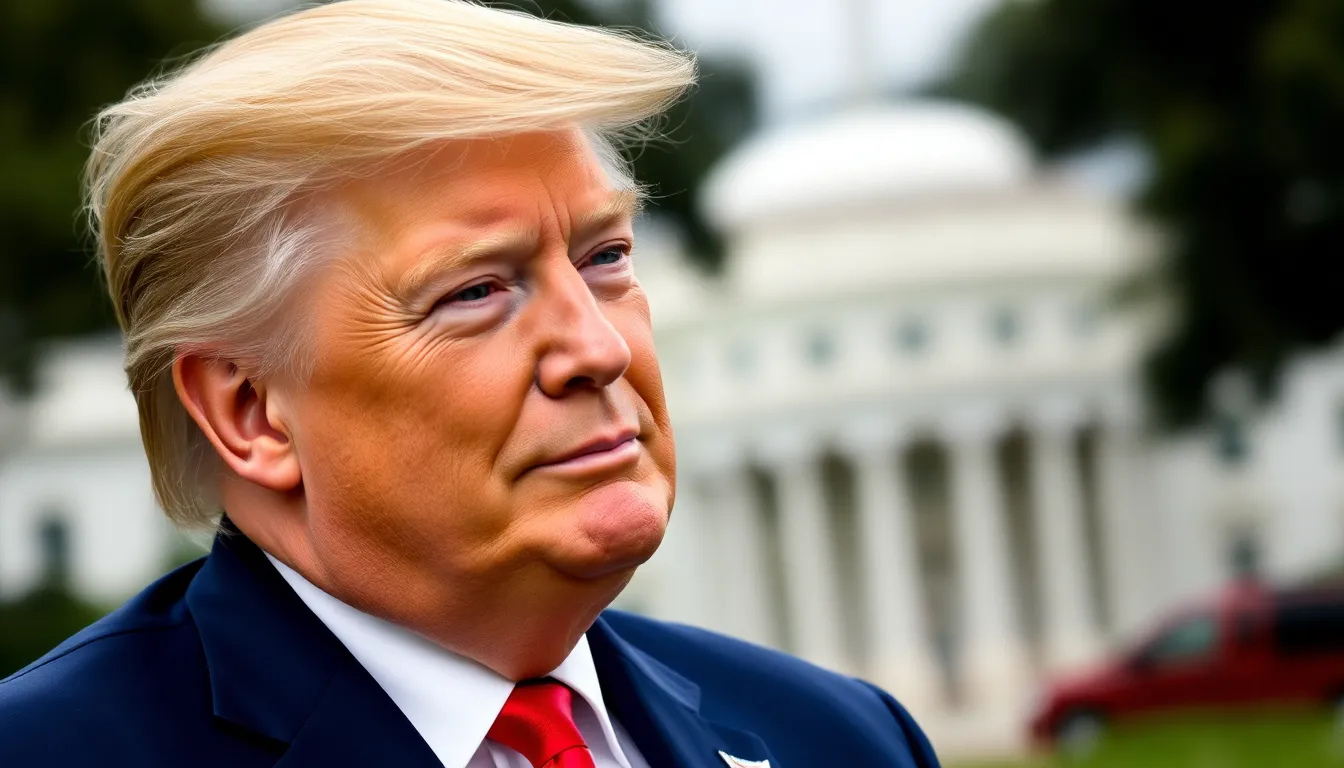Table of Contents
ToggleIn a world where celebrity news often trumps politics, the unexpected pairing of Donald Trump and Sean “Diddy” Combs has piqued curiosity. Did Trump really say he’d pardon the music mogul? It sounds like a plot twist straight out of a Hollywood script, but this unlikely scenario has sparked conversations across social media and news outlets alike.
As rumors swirl and memes flood the internet, one can’t help but wonder what this means for both figures. Is it a clever PR stunt or just another day in the unpredictable realm of celebrity politics? Buckle up as we dive into this fascinating tale that blends fame, fortune, and a dash of political intrigue.
Background of the Statement
The speculation surrounding Donald Trump’s potential pardon for Sean “Diddy” Combs stems from a series of comments made by Trump during recent interviews.
Context of Trump’s Comments
Trump made remarks suggesting a willingness to consider pardoning individuals involved in non-violent offenses. Media outlets quickly linked this statement to Diddy, who faced legal challenges in the past. Trump’s prior actions indicated openness to celebrity pardons, exemplified by his controversial decisions during his presidency. Political analysts view this connection as both strategic and opportunistic. Some interpret his comments as a way to appeal to the youth and music industry, while others question the sincerity behind such gestures.
Reactions from Diddy and Others
Diddy has remained relatively quiet regarding the potential pardon. However, he expressed appreciation for Trump’s acknowledgment during a recent interview. Fans and social media users reacted with a mix of surprise and skepticism. Some individuals welcomed the possibility, seeing it as a demonstration of political solidarity. Public figures in the entertainment industry voiced opinions both in favor and against the idea, emphasizing the complex nature of celebrity and politics.
Analysis of the Claim

Speculation about Trump’s possible pardon for Diddy has generated significant interest and debate among observers.
Fact-Checking the Statement
Recent statements by Trump, discussing pardons for non-violent offenders, sparked the connection to Diddy. Media outlets noted this tie due to Diddy’s past legal issues. Political commentators emphasize the uncertainty surrounding Trump’s actual intentions. Expertise from legal analysts highlights that no formal pardon request for Diddy exists. Confirmation from Trump’s team remains absent, leaving the narrative largely speculative. Everyone involved acknowledges the complications of interpreting Trump’s comments.
Implications of a Possible Pardon
Discussion around a potential pardon for Diddy presents various implications. Supporters might see this as a strategic move to gain traction among young voters. His connections to the music industry enhance that perception. Conversely, critics could argue this represents another instance of celebrity politics undermining serious judicial processes. Legal experts often indicate that pardoning Diddy could lead to broader conversations about criminal justice reform. Engagement from both fans and public figures illustrates the complexities inherent in blending fame with politics.
Public and Media Response
Rumors regarding Trump’s potential pardon for Diddy have sparked intense discussion. Various reactions have surfaced on social media platforms, reflecting public sentiment.
Social Media Reactions
Fans have expressed a mix of excitement and skepticism online. Supporters of Diddy highlight the possible benefits of a pardon, discussing how it might help his reputation. Critics, however, question the motives behind Trump’s comments. Many users have taken to Twitter to voice their opinions, generating hashtags that gain traction. Memes and viral posts regarding the situation showcase both humor and criticism of celebrity politics. Engagement spikes when notable figures and influencers weigh in, illuminating the widespread interest in this unprecedented connection.
Coverage by Major News Outlets
Major news outlets have closely monitored the unfolding story. CNN, The New York Times, and others have published articles analyzing Trump’s remarks and their implications. Coverage often centers on the historical context of Trump’s celebrity pardons, drawing parallels between past decisions and this current scenario. Expert opinions from legal analysts frequently feature in these reports, emphasizing the lack of formal action concerning Diddy. Media narratives also explore potential political advantages for Trump, especially among younger demographics. The ongoing coverage illustrates the narrative’s complexity, blending legal, social, and political threads in an intriguing way.
Historical Perspective on Pardons
Pardons have played a significant role in American politics, often reflecting the social and political climate of the era. Recent discussions about Donald Trump’s comments on potentially pardoning Sean “Diddy” Combs bring this history to the forefront.
Notable Pardons by Presidents
Presidents throughout history have issued notable pardons. Gerald Ford pardoned Richard Nixon in 1974, which sparked considerable controversy. Bill Clinton granted a last-minute pardon to Marc Rich, a financier wanted for tax evasion, in 2001, drawing criticism from both sides of the political spectrum. Barack Obama famously commuted the sentences of over 1,700 individuals, focusing on non-violent drug offenders during his administration. Each action has shaped public perception of presidential pardons, often intertwining with political motives and public opinion.
Patterns in Pardoning Decisions
Patterns often emerge in how presidents approach pardons. Many presidents tend to focus on issues relevant to their constituencies, aiming to address social justice concerns or seek political advantage. Pardons frequently target non-violent drug offenders, reflecting changing attitudes towards drug policy. Timing plays a crucial role, as presidents might opt for pardons before elections to garner support from specific voter demographics. Due to these strategic considerations, pardoning decisions reflect broader societal trends and political agendas.
Conclusion
The speculation surrounding Donald Trump’s potential pardon for Sean “Diddy” Combs underscores the complex interplay between celebrity culture and politics. While Trump’s comments have sparked significant interest and debate, the lack of formal action leaves much to interpretation.
As public figures continue to engage in discussions about justice reform and the implications of celebrity influence, the narrative remains fluid. Whether this potential pardon is a strategic maneuver or merely a passing comment, it highlights the ongoing dialogue about the intersection of fame and political power.
As the story unfolds, both supporters and critics will likely keep a close eye on any developments, revealing how such dynamics shape public perception and influence broader societal conversations.



